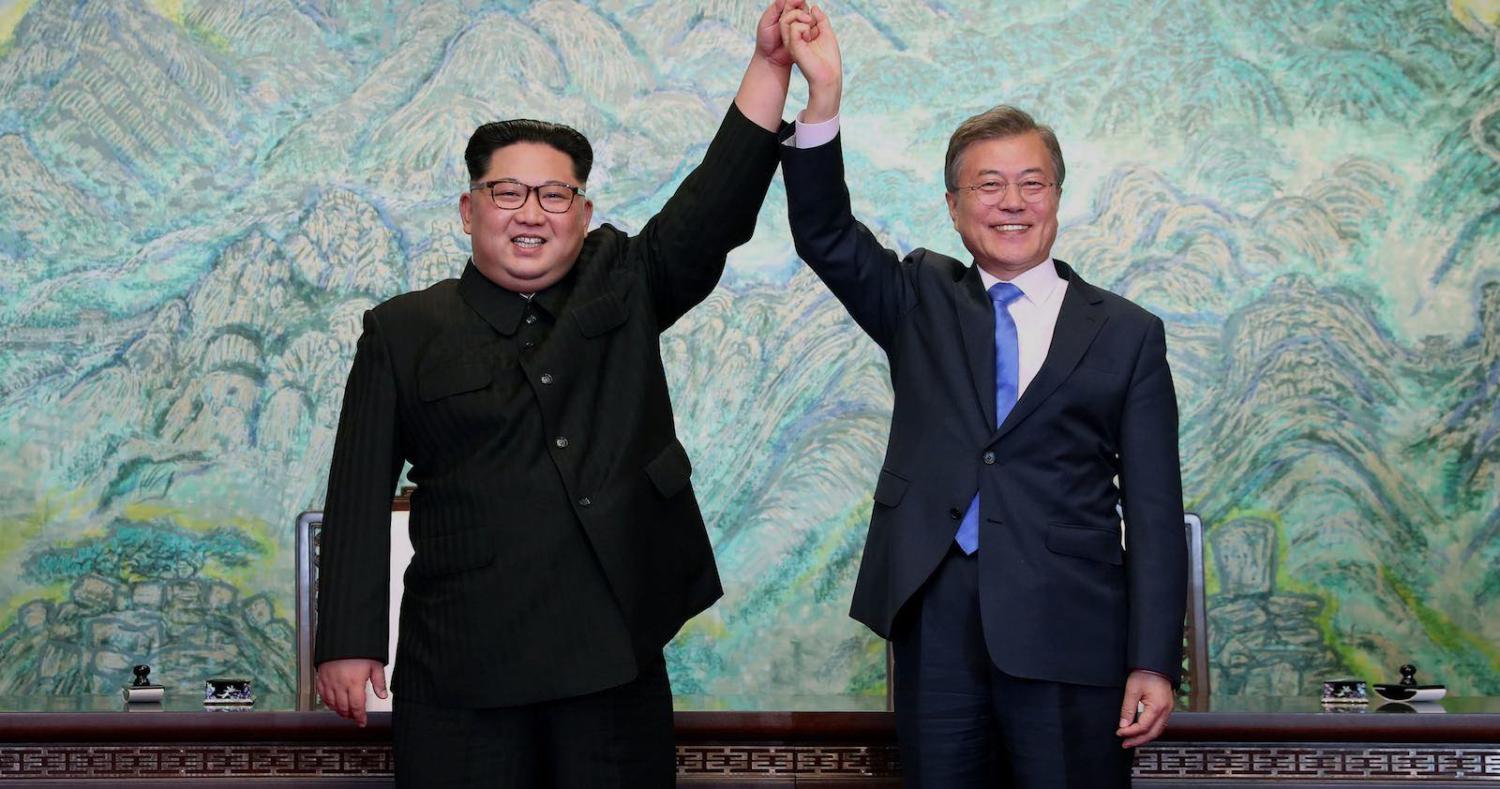The Trump–Kim summit last week in Singapore was a nothingburger – not good or bad, just nothing new really at all.
After months of hype, including grossly inflated talk of CVID (complete, verifiable, irreversible disarmament) and a Nobel prize, US President Donald Trump’s meeting with North Korean dictator Kim Jong-un returned very little. As was quickly pointed out on Twitter and in the cable news coverage, the Sentosa Declaration was disappointingly similar to previous statements. In fact, it was somewhat inferior.
In practice, the fizzle in Singapore opens the door to South Korean President Moon Jae-in to run this year’s North Korea détente as he sees fit. Moon’s party also cleaned up in last week’s local elections in South Korea. Even the mayoralty of the city I live in, Busan, was won by the primary left-wing party, the Democratic Party. I believe this has never happened before. This was in part a validation of Moon’s outreach strategy.
The political left in South Korea is now in a strong position from which to pursue a vigorous détente. The Democrats are the largest bloc in the legislature. Moon is a liberal with an 80% approval rating. The Democrats just won elections in the middle of the détente season. And Trump has effectively withdrawn from the peace process.
Singapore was, therefore, a curious sort of win for engagers. As South Korea’s only ally, the US had to be involved in the peace process in some way. The US is the world’s sole superpower; it is deeply vested in Northeast Asia. Around 300,000 Americans live in South Korea, and the US defence shield has been central to South Korean security for decades. So, Washington’s participation was inevitable.
But Trump is notoriously lazy and checked-out from policy detail. He is also impulsive, belligerent, and unpredictable. Last year it seemed as though he might start a nuclear war. The US has also been generally more hawkish on North Korea than the South. So for engagers, Singapore takes care of a few necessary elements.
It ties Trump ever more tightly to a diplomatic track, making backsliding towards last year’s war threats harder. Trump’s media addiction is now sated. He got his big TV appearance; he got the global publicity he craves. He can now claim, as he already has on Twitter and in Trumpist-conservative media back home, to have taken care of the North Korean problem. Trump can now push it all onto Secretary of State Mike Pompeo and go back to attacking his domestic enemies, which interests him far more than the thorny Korean issues that would require real focus and energy to manage.
But because there is no hard substance to it, the Sentosa Declaration does not lock Moon into any framework or direction. It is the best of both worlds for Moon: Trump’s taste for substance-free publicity and disdain for detail both removes him from the process now, and lets Moon more or less do whatever he likes.
This is good or bad depending on your North Korea politics, of course. The South Korean left has long complained that the US intervenes too much in Korean politics and that the two Koreas should be left to their own devices. Conservatives worry that without US hawkishness on North Korea, the South Korean left will offer a lot for very little.
The South Korean left has long flirted with the idea of a federation of some kind with the North. Conservatives have often opposed this, because they fear it will turn into semi-permanent subsidisation of the North, and lead to curbs on freedoms in the South.
It is unclear if Moon has enough political support to push something like a Greater Koryo Confederation, but if there was ever a time to try, this is it. The political winds are about as favourable as they are going to get for a leftist, big-bang approach to a final status deal with North Korea.
For a generation, the left promised a different, less confrontational approach to North Korea than the usual suspects on the right. In this narrative, the old guard, which held the South Korean presidency for decades, and the hawks who filled the national security bureaucracies in the US and South Korea for decades, had little to offer but more competition, threats of force, and the status quo.
Those hawks dragged their feet out of deep distrust for North Korea. Now we have a chance to test the outreach argument. Trump has recessed himself. Moon has the political support for a major effort. He knows the issues as well as any liberal of his generation. This is it. Maybe he can pull it off. I am doubtful myself, but we wish him luck.

